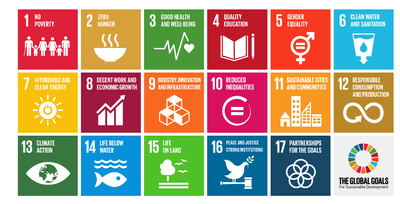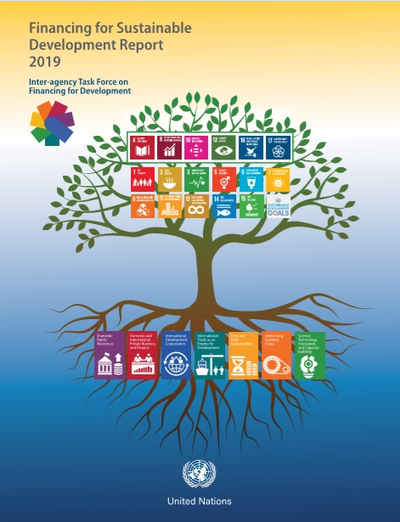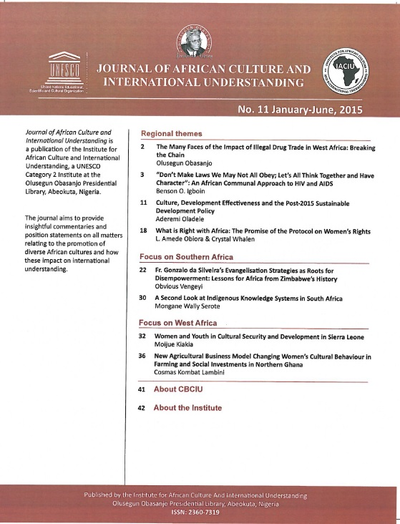
On the Ado about Development Results (2) – Sustainable Development and “No More Business as Usual” – About the time I read Dr. Yunu’s testimony, another subject was making wave – sustainable development. My initial understanding of the concept is that economics seemed to have ignored the challenge of environmental continuity which might prevent future economic prosperity. In economics, each time we draw the supply and demand chart, we lay emphasis on production and consumption and how demand spurs supply and vice-versa. Herman Daly, in his 1996 book, the Economy of Sustainable Development, draw particular attention to the fact that the source of supply of raw materials used, which are either irreplaceable or irreversible on the side of the damage done to the environment and nature’s replacement are not accounted for. He went further to say that at some point there will be need for us to rethink our economics mentality and give rooms to a fresh intellectual economic theories that prioritize the source of riches and not so much on how to convert the material sources to riches and consumables that will, in any case, not be possible to extract in the same rhythm in the nearest future.
Daly’s theory confirmed what has been written in the Limits to Growth published in the 70s. Today, it is no mere news that the world is heading for a doom with the effects of climate change and environmental degradation that it has become one of the major preoccupation of modern times to balance economic growth with ecological sanity and the third point, in the pillars of sustainable development, social cohesion.
The mentality of it is impossible to continue to do business-as-usual has been continually reinforced since the late 1990s, and it cut across programmes and processes of international, national and local development governance. This is also coupled with the sense of urgency that actions towards poverty eradication in developing countries are crucial and needs a rethink. Africa is at the centre of this sense of urgency.
During my PhD coursework, whilst I was preparing the proposal for my thesis, achieving sustainable development in Africa was for me an interesting and cogent topic to devote many years of research on. However, as I read deeper and deeper into issues, it dawned on me that there are many challenges that will not make sustainable development work. Out of these, the manner public institutions work in Africa came as number one obstacle.
I remember reading about the fact that in 1997, five years after the ground-breaking Earth Summit held in Rio de Janeiro, Brazil, Maurice F. Strong, the Secretary-General of the Summit, while commenting that most of the decisions reached in 1992 are still at rhetoric levels for governments, highlighted a good number of progress already made by the private sector in what he called practical examples of success that we can build on [1]. In the same spirit, during the course of the World Summit on Sustainable Development (WSSD) held in Johannesburg in 2002, one unidentified commentator mentioned the hope of achieving sustainable development lies with NGOs and the private sector». While we can ascertain the affirmation of the former commentator, the origin and accuracy of the latter is yet to be verified and may not be totally right after all – but the basis for the reactions of both on the subject provided a food for thought.
Apart from the fact that the burden on the environment brought about by rapid economic and technological progress has been the major responsibility of business, hence the need to look towards them for effective kick-offs for solutions, their role in the campaign for development notwithstanding, the traditional way by which issues are resolved and the ferocity of goal setting, targets and result orientation have been well established as major success factors, to the extent that the private sector is now a major force in today’s international/economic affairs.
Maurice Strong challenged other institutional machineries – governments in particular – on the need to follow the examples of business by manifesting more enthusiasm and rapid response to the challenge of sustainable development, and perhaps, in the deployment of resources and approach to efficiency, which governments generally lack, and the comment that followed quickly wrote government off as a hope for better future. Yet, we cannot undermine the role of governments, politics and public service in any nation as far as development administration is concerned. Government and the civil service will continue to play significant roles in the carriage of development, but they must strive to upgrade action, procedures and institutional systems to meet the current challenges in order to be more effective……….. Click to continue




